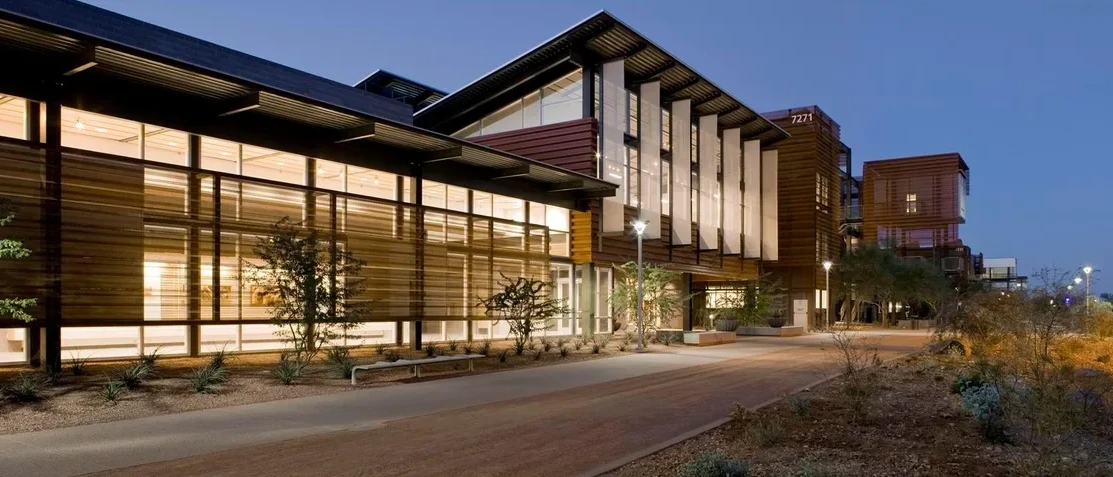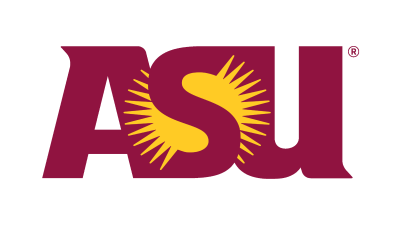

Arizona State University (Polytechnic Campus)
Educational Studies, BAE
Study detals
: Bachelor's degree : Educational Studies, BAE EDSLSTBAE : Full time : 48 MonthRequirements
Academic requirements
First-year students must:
- Have a 3.00 grade point average (GPA) (a "B" or better where "A"=4.00) from a secondary school. Some ASU programs may have higher admission or English proficiency requirements and may consider a minimum ACT or SAT score.
- Must have three years of high school coursework. (If you are currently in high school, ASU needs to see 9–11 grade coursework. If you have completed high school, ASU needs to see 10–12 grade coursework.)
- Must have and present a completed high school diploma or certificate.
Conditional admission
ASU may offer conditional undergraduate admission to international applicants to an on-campus program who meet the academic (aptitude) requirements but who are not proficient in English. This offer of conditional admission will give you time to improve your English proficiency before you start classes at ASU. Your conditional admission offer is good for up to three semesters, during which time you must meet one of these requirements to begin your ASU experience.
Competency requirements
International students who completed high school outside the U.S. are required to meet the following competency requirements:
- Math: four years (algebra I, geometry, algebra II and one course requiring algebra II as a prerequisite).
- Laboratory science: three years total (one year each from any of the following areas are accepted: biology, chemistry, earth science, integrated sciences and physics).
Provide evidence of English language proficiency (TOEFL 61)
Speciality
Available online
Additional information
The BAE program in educational studies prepares students to work with children, youth and adults within nonprofit settings, community institutions, civic organizations and businesses. Students develop cultural competence for social justice, including self-awareness, understanding and valuing others, and knowledge of societal inequities. Students develop skills for facilitating learning experiences with and for diverse people in different contexts; for fostering equity and inclusion; and for effective communication, collaboration, leadership, advocacy and innovation, all of which are essential to education professionals.
Students focus on one of 13 core tracks, pursuing additional coursework and expertise in:
- business
- community health
- counseling
- entrepreneurship
- environmental education
- family and human development
- global studies
- health innovations
- nonprofit administration
- organizational leadership
- personal health
- political science
- recreation management
Educational studies students complete a two-semester internship. Students can choose to intern with a nonprofit, business or government organization. Through their internship experiences, students use concepts of diversity, equity and social justice to guide their identification of an education challenge within their organization. By using the human-centered design approach, which involves placing people at the center of the problem-solving process, they examine the challenge, ideate and ultimately implement a solution.
An educational studies minor is also available to ASU students in other degree programs.
This program does not lead to teacher certification. Students seeking teacher certification should enroll in one of the other Mary Lou Fulton Teachers College undergraduate programs.
Concurrent program options
Students pursuing concurrent degrees (also known as a “double major”) earn two distinct degrees and receive two diplomas. Working with their academic advisors, students can create their own concurrent degree combination. Some combinations are not possible due to high levels of overlap in curriculum.
Accelerated program options
This program allows students to obtain both a bachelor's and master's degree in as little as five years. It is offered as an accelerated bachelor's plus master's degree with:
- Educational Policy, MA
- Elementary Education (Teacher Certification), MEd
- Elementary Education, MEd
- Learning Sciences, MA
- Secondary Education (Teacher Certification), MEd
- Secondary Education, MEd
Acceptance to the graduate program requires a separate application. Students typically receive approval to pursue the accelerated master’s during the junior year of their bachelor's degree program.
Global opportunities
Global experience
Because of climate change, geopolitical instability or economic factors, the United Nations and other institutions predict that migration is expected to increase globally for the foreseeable future. Learners will be migrating to new communities. Increasingly, educators will be asked to meet the needs of students who speak languages other than English and who bring a range of cultures into classrooms and learning environments. Education students who participate in study abroad programs can prepare for this reality by engaging in Global Education programs, where they can expand their notion of normal schooling and deepen their understanding of how to foster inclusive and inspiring learning environments.
Career opportunities
Graduates have a versatile degree that qualifies them for a variety of career paths in education, including roles at nonprofit organizations, community institutions, civic organizations and businesses.
This degree is also preparation for graduate programs in education or education-related fields or for trajectories based on the context of the individual's work (e.g., organizational development).